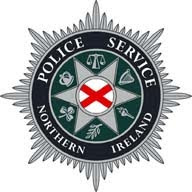I was delighted to have had the opportunity to speak at a number of events last week. Two of these were almost exclusively female audiences, made up of senior representatives from organisations spanning the public and private sectors.
Hannah Shields was the keynote speaker at Friday’s Visible Women event being run by Ards and North Down Borough Councils. Hannah, from Kilrea, was the first ever women from Northern Ireland to conquer Mount Everest. She has a quite remarkable and fascinating tale of personal perseverance, determination and passion to achieve her own personal goal.
We can all think of at least one person who has influenced or inspired us - a parent, friend, colleague or complete stranger. Perhaps, not surprisingly, Hannah referred to Sir Edmund Hilary who said: “People do not decide to become extraordinary. They decide to accomplish extraordinary things.”
When we actually think about it, every single one of us has our own personal challenges to overcome. And whilst very few of us will ever climb Mount Everest, every day ordinary people achieve extraordinary things.
People who give up their own time to work in communities as volunteers for example. People who work with children and young people who may be at risk.
Perhaps one of the biggest life challenges is to be a parent. You can train for months and then undertake a physical challenge, but sons and daughters are for life. As parents we are extremely powerful people - and although sometimes we may not think it, our potential to influence our children is a lifetime one.
Whilst most crime is committed by adults, and often young people are victims of crime, unfortunately as a Police Service we all too often come into contact with children or young people who have become involved in criminality or have been drawn into risky situations by their peers.
Recent incidents of public disorder are a prime example. Of course, not everyone involved in the disorder was a young person, and it was clear that there were individuals seeking to influence younger people and place them at real risk in these situations.
Our desire is not to criminalise young people. Where possible and appropriate, we want to give those who have been caught committing crime another chance.
Most importantly, we need the support of parents to prevent young people getting involved in risky situations in the first place. Make sure you know where your children are and who they are with. Young people also need to recognise that their actions now can have a significant impact on their future.
I certainly want a future Northern Ireland free from violence, fear, discrimination and division for my children.
Together we can make real progress towards achieving that goal.

No comments:
Post a Comment